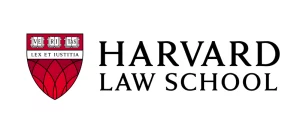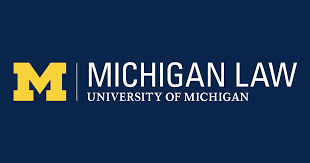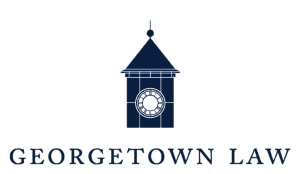If you want to be a lawyer – or a judge, advocate or lawmaker – law school may be in your future. Pre-law students should know what to look for in a law school, including what types of law degrees and areas of focus are offered and how well graduates perform on the Bar Exam and securing employment after graduation. On our list of the 25 best law schools in America, you’re sure to find colleges and universities that can help you reach your dreams of a career practicing law.
RELATED: Which Degree Do You Need to Become a Lawyer?
Our Law School Rankings Criteria
Given the hundreds of good law schools in the U.S., coming up with a list of just 25 isn’t easy. We looked at several types of data from many different sources to guide our selection of the 25 best law schools. The criteria we considered in formulating these rankings include the following.
American Bar Association Accreditation
Nearly 200 Juris Doctor-granting institutions quality as American Bar Association (ABA)-approved law schools. Every school of law we ranked among the top 25 is ABA-approved.
Selectivity
We measured selectivity based on each school’s 2021 acceptance rate data from the ABA’s 509 Required Disclosures reports.
Median LSAT Score
To get into law school, students typically have to take a standardized test called the Law School Admission Test (LSAT), which is administered by the Law School Admission Council (LSAC). The median LSAT scores listed for each school were also pulled from the ABA’s 509 Required Disclosures reports. These scores represent the 50th percentile of all matriculants, using the highest scores submitted for each matriculant (rather than first-attempt scores).
Bar Exam Pass Rates
Even after you graduate from law school, you can’t legally practice law without first passing the Bar Exam. The Bar Exam pass rates listed for each school represent the weighted law school pass rate, rather than the first-attempt pass rates, reported for 2021, according to data from the ABA.
Employment Outcomes
How many law school graduates actually put their degrees to use in attorney positions that require passing the Bar Exam? The data listed reflects the class of 2020’s 10-month employment rates based on ABA-required employment disclosures.
RELATED: 20 Non-Law Firm Jobs with a Law Degree
Association of American Law Schools Membership
All of the institutions that landed a spot on our list of the top law schools are among the 176 colleges and universities that have attained Association of American Law Schools (AALS) membership. To qualify for membership, schools must meet rigorous requirements in the areas of teaching, faculty scholarship, diversity and governance.
School Reputation
One way to gauge a law school’s reputation is by looking at some of the most longstanding and trusted school rankings available. There are many rankings of law schools based on various methodologies.
In addition to our own research using data provided by the American Bar Association and the schools themselves, we considered where these institutions fall on well-known rankings lists like the 2023 Best Laws Schools by U.S. News & World Report. Every school of law included in our 25 best law schools rankings also made The Princeton Review’s unranked 2022 Best Law Schools list, and many of these institutions were ranked highly on National Law Review’s 2022 Go-To Law Schools list, as well.
Cost
Going to law school is an investment in your future – a big one, given the high cost of education at the Juris Doctor level. We included in our methodology a look at the cost and value of the education you receive. The tuition rates listed below, unless otherwise noted, are resident tuition rates per semester as reported by disclosures submitted by the law schools to the American Bar Association.
Because these schools are highly regarded as excellent institutions of higher learning, many of them come with an expensive price tag. Students should be aware that the “sticker cost” isn’t necessarily what they would actually pay to attend the school. Students can often qualify for scholarships and other forms of financial aid that can put even a school with an expensive tuition rate within reach.
The 25 Best Law Schools
Which law schools offer some of the best law degrees and opportunities for experiential education, research scholarship and customized coursework in the country? The 25 institutions below represent the top law schools in the U.S.
1. Harvard Law School at Harvard University
 Harvard Law School in Cambridge, MA, lives up to the Ivy League reputation for which Harvard University is known. The Class of 2020 at Harvard Law School consisted of 570 students, 495 of which had successfully secured employment in a position that requires passing the Bar Exam within 10 months. All told, the 10-month employment rate for Harvard Law School graduates amounted to 86.8%. The National Law Journal’s 2022 Go-To Law School rankings named Harvard number-one on its list of schools where the most alumni were promoted from associate roles to partner roles.
Harvard Law School in Cambridge, MA, lives up to the Ivy League reputation for which Harvard University is known. The Class of 2020 at Harvard Law School consisted of 570 students, 495 of which had successfully secured employment in a position that requires passing the Bar Exam within 10 months. All told, the 10-month employment rate for Harvard Law School graduates amounted to 86.8%. The National Law Journal’s 2022 Go-To Law School rankings named Harvard number-one on its list of schools where the most alumni were promoted from associate roles to partner roles.
The school boasted the highest 2021 Bar Exam passage rate of all schools on our list, at 99.44% (based on the weighted law school passage rate reported by the American Bar Association). This highly selective school has one of the lowest acceptance rates, at just 6.90%.
Harvard University’s Law School was tied for fourth place on the 2023 U.S. News & World Report rankings and is a charter Member of the AALS. The median LSAT score among matriculated law school students at Harvard University was 174 in 2021. Tuition at the expensive private law school was $67,720 as of 2021.
In Harvard’s Juris Doctor program, first-year students complete studies in constitutional law, criminal law, civil procedure, legislation and regulation, contracts, torts, property and legal research and writing. Through this curriculum, first-year students acquire a foundational understanding of the United States legal system as a whole. The January Experiential Term offers an opportunity to gain practical skills. Small reading groups integrated into law school students’ first year provide an opportunity to explore other topics in legal studies, ranging from bioethics and artificial intelligence to detective fiction and Biblical law.
After students finish the foundational studies of their first year of law school, they move into the upper-level coursework required to become practicing lawyers. Harvard’s JD program offers seven specialized programs of study that students may choose to pursue:
- Law and History
- Law and Government
- Law and Business
- Law and Social Change
- Law, Science and Technology
- International and Comparative Law
- Criminal Justice
In addition to the JD, the school offers a Master of Laws (LLM) graduate degree and a Doctor of Juridical Science (SJD) degree for aspiring academics interested in legal scholarship. Harvard Law School currently holds the title of the law school with the most United States Supreme Court Justice alumni. Four Supreme Court Justices who are currently serving – Chief Justice John Roberts, Elena Kagan, Neil Gorsuch and Ketanji Brown Jackson – went to Harvard University for law school.
RELATED: Is There Value in Getting a Master’s of Law If I’m Already a Lawyer?
2. New York University School of Law
 New York University School of Law is the oldest law school in New York City, dating back to 1835. Law students at New York University passed the Bar Exam at a rate of 98.70% in 2021, boasting one of the highest passing rates of the schools on our list. NYU School of Law graduated a class of 476 in 2020, 419 of whom reported relevant employment 10 months later, for a total 10-month employment rate of 88.0%.
New York University School of Law is the oldest law school in New York City, dating back to 1835. Law students at New York University passed the Bar Exam at a rate of 98.70% in 2021, boasting one of the highest passing rates of the schools on our list. NYU School of Law graduated a class of 476 in 2020, 419 of whom reported relevant employment 10 months later, for a total 10-month employment rate of 88.0%.
U.S. News rankings placed New York University School of Law seventh among all law schools in the country. The National Law Journal ranked New York University as tied for second place for the law school with the most alumni promoted from associates to partners. Further, the Princeton Review named the New York University School of Law the institution with the “Best Career Prospects” in its 2022 Best Law Schools list.
Matriculated students at New York University School of Law reported a median LSAT score of 172. However, the school reported an acceptance rate of 14.52%, considerably higher than institutions like Yale, Harvard and Stanford.
New York University is a Charter Member of the AALS. The price tag of $70,400 tuition cost in 2021 makes this private school among the most expensive on our list.
A Juris Doctor education at New York University won’t just teach you the practical skills you need to practice law. The curriculum, taught by top legal scholars and experts, emphasizes interdisciplinary learning and integrates knowledge of history, philosophy, politics, economics and social theory for a more in-depth, well-rounded understanding of the law and its causes and effects.
That said, your education won’t be purely theoretical, either. Law students at NYU build practical skills by completing more than 40 clinics in areas that range from civil rights, public policy advocacy and environmental law to entrepreneurship and business transactions.
The curriculum includes a variety of courses and extracurricular learning opportunities in areas like global law, law and business, law and technology and public service. Students can choose from 16 areas of study at NYU, including international law, taxation law, environmental law, corporate law and intellectual property law. Ambitious students can choose to pursue one of eight dual-degree programs that award both a Juris Doctor degree and a master’s degree or PhD in areas like taxation, economics, politics, business administration or social work.
3. Yale Law School at Yale University
 This private institution has bragging rights galore. U.S. News & World Report ranked Yale number-one on its 2023 list of the best law schools in America (although both Yale and Harvard University Law Schools announced in November 2022 that they would no longer be participating in the U.S. News & World Report rankings because of “flaws” in the publication’s methodology, according to The New York Times).
This private institution has bragging rights galore. U.S. News & World Report ranked Yale number-one on its 2023 list of the best law schools in America (although both Yale and Harvard University Law Schools announced in November 2022 that they would no longer be participating in the U.S. News & World Report rankings because of “flaws” in the publication’s methodology, according to The New York Times).
The school boasts a 98.14% Bar Exam pass rate, and 83.3% of its Class of 2020 (170 of the 204 total graduates) reported employment 10 months after graduation. Yale Law Schol is a Charter Member of the Association of AALS. Additionally, Yale University is one of only three law schools from which more than four law students have gone on to become Supreme Court Justices as of 2022.
The New Haven, CT, school is also notable for other reasons. The Princeton Review named Yale University “Toughest to Get Into” among all law schools in the U.S. in its 2022 Best Law Schools list. Only 4.12% of the law school’s applicants in 2021 were accepted. Matriculants at the highly selective law school earned a median LSAT score of 174. The school is also known for its high tuition rate – $67,108 in 2021, making it one of the most expensive schools on our list.
Yale Law School at Yale University is home to numerous centers, projects, partnerships and programs, including the following:
- Yale Center for Law and Philosophy
- Yale Law School Center for Private Law
- Yale Law School Center for the Study of Corporate Law
- Center for Global Legal Challenges
- Justice Collaboratory
- Law and Political Economy at Yale
- Yale Center for Environmental Law and Policy
- John M. Olin Center for Law, Economics and Public Policy
- Solomon Center for Health Law & Policy
- The Arthur Liman Center for Public Interest Law
- Law and Racial Justice Center
- Yale Law School Latin American Legal Studies
- Gruber Program for Global Justice and Women’s Rights
- Abdallah S. Kamel Center for the Study of Islamic Law and Civilization
- Paul Tsai China Center
- Orville H. Schell, Jr. Center for International Human Rights
- Global Health Justice Partnership
- Cultural Cognition Project
- Law, Ethics & Animals Program
- The Ludwig Program in Public Sector Leadership
- The Chae Initiative in Private Sector Leadership
- Information Society Project
- Collaboration for Research Integrity and Transparency
Students at Yale can also participate in a variety of workshops focusing on areas like law and finance, dispute resolution, human rights, legal history and legal theory. Areas of study at Yale University Law School include criminal justice, constitutional law, corporate and commercial law, international law, human rights law, environmental law, law and economics, public interest law, law and health, information technology and media law, legal history and law teaching.
4. University of Chicago Law School
 With a U.S. News & World Report ranking of number three in the nation, the University of Chicago Law School is well-respected. This Chicago, IL, law school boasts a 97.76% pass rate on the Bar Exam.
With a U.S. News & World Report ranking of number three in the nation, the University of Chicago Law School is well-respected. This Chicago, IL, law school boasts a 97.76% pass rate on the Bar Exam.
Of all of the impressive institutions on our law school rankings, the University of Chicago has the highest 10-month employment rate. The private university saw 194 of its 203 graduates in the Class of 2020 secure relevant employment within 10 months, amounting to a 95.6% employment rate.
The Princeton Review named the University of Chicago Law School “Best for Federal Clerkships” in its 2022 Best Law Schools. In its “Go-To Law School” rankings, the National Law Journal ranked the institution 10th in the nation for the rate at which its alumni were promoted from associates to partners.
The University of Chicago Law School is among the more selective schools on our list, with an acceptance rate of 11.91% and a median LSAT score of 172. At a tuition cost of $70,710 per semester as of 2021, this institution is also among the most expensive schools on our list.
Law students at UChicago will cover an interdisciplinary curriculum that includes offerings in the areas of law and economics, law and philosophy, international and comparative law, legal history and law and business. The program is particularly well-suited to students who are interested in public interest careers, because the school offers support and resources for preparing for and acquiring these roles.
First-year students complete courses in areas like civil procedure, criminal law, constitutional law, property, contracts, torts, legislation and legal writing, as well as an interdisciplinary introductory course called Elements of the Law. Upper-level courses include both clinical courses and lecture courses in areas like family law, health law, administrative law, taxation, human rights, intellectual property and jurisprudence (legal theory and philosophy).
5. Duke University School of Law
 Duke University in Durham, North Carolina, is a private institution with impressive stats. Of the school’s 2021 law school graduates, 97.21% passed the Bar Exam (based on the weighted law school Bar passage rate).
Duke University in Durham, North Carolina, is a private institution with impressive stats. Of the school’s 2021 law school graduates, 97.21% passed the Bar Exam (based on the weighted law school Bar passage rate).
Duke Law graduated a class of 214 students in 2020, 199 of which went on to attain relevant employment within 10 months. The 93.0% 10-month employment rate is among the best of all schools on our rankings list.
The acceptance rate at Duke School of Law was just 14.45% in 2021, and the median LSAT score of matriculated students was 170. U.S. News rankings placed Duke Law School at 11th in the nation, and the institution tied for 11th place on the National Law Journal’s ranking of the schools with the most alumni promoted from associate to partner.
Law students at Duke are looking at a per-semester tuition cost of $68,400.
Students at Duke Law School focus much of their upper-level studies on developing real-world skills for legal work in clinics, small group studies with faculty and practical skills courses. Special emphasis is placed on legal education in areas like business law, finance law, health law, biotechnology law, intellectual property law and international law.
6. University of Michigan Law School
 Another highly selective institution for a legal education is the University of Michigan Law School in Ann Arbor, MI. Only 10.65% of applicants were accepted in 2021, making the University of Michigan the fourth most selective law school on our rankings list. Matriculated law students at the University of Michigan Law School earned a median LSAT score of 171.
Another highly selective institution for a legal education is the University of Michigan Law School in Ann Arbor, MI. Only 10.65% of applicants were accepted in 2021, making the University of Michigan the fourth most selective law school on our rankings list. Matriculated law students at the University of Michigan Law School earned a median LSAT score of 171.
The University of Michigan Law School is, according to our methodology, the best public law school in the country. The school is a Charter Member of the AALS and boasts a weighted Bar Exam pass rate of 97.18% for 2021.
Michigan Law School’s Class of 2020 included 332 graduates, 305 of whom successfully secured relevant employment within 10 months to achieve an employment rate of 91.9%.
U.S. News rankings place Michigan Law 10th in the nation on its 2023 law school rankings, and the National Law Journal ranked the institution ninth in the nation among the schools with the most alumni promoted from associates to partners. Law students at the University of Michigan paid a tuition rate of $63,680 per semester in 2021.
Areas of study at Michigan Law include civil rights, human rights, health care law, tax law, public interest law, litigation, legal research and writing, labor and employment law and law and the social sciences. The school emphasizes experiential learning through clinics, externships, practice simulations, a first-year Legal Practice Program, a Problem-Solving Initiative and a pro bono program.
In addition to the Juris Doctor program, students can pursue LLM, Executive LLM and SJD degrees, as well as a Certificate in Advanced Corporation Law.
7. Stanford Law School at Stanford University
 Ranked second in the nation by U.S. News, Stanford University in Stanford, CA, offers one of the most impressive programs in the country. In terms of selectivity, Stanford University is second only to Yale, with an acceptance rate of just 6.28%. Its students achieved a 97.08% weighted Bar Exam pass rate in 2021.
Ranked second in the nation by U.S. News, Stanford University in Stanford, CA, offers one of the most impressive programs in the country. In terms of selectivity, Stanford University is second only to Yale, with an acceptance rate of just 6.28%. Its students achieved a 97.08% weighted Bar Exam pass rate in 2021.
Of the 182 graduates who made up the Class of 2020, 155 – 85.2% – had achieved relevant employment within 10 months of graduating. Among matriculated students entering Stanford Law School in 2021, the median LSAT score was 172.
Like most of the institutions on our ranking of the best law schools, Stanford University is a private institution. Stanford Law School is a Charter Member of the AALS. The law department at Stanford University dates back to 1893, when former President Benjamin Harrison became the school’s first professor of law.
Stanford University is, without a doubt, one of the best law schools in the country. Although its 2021 per-semester tuition rate of $64,350 is steep, it’s thousands of dollars more affordable per semester than other top-performing law schools like NYU and UChicago.
Stanford Law School is another institution that embraces an interdisciplinary curriculum. This focus, along with instruction and seminars by faculty members whom tthe school bills as “legal luminaries,” allow students to develop a unique understanding of new areas of law like cybersecurity and artificial intelligence along with traditional areas like civil rights and human rights. Students learn in the Law and Policy Lab as well as in 11 full-time clinics. Completing clerkships with the U.S. District Court, U.S. Court of Appeals or even the U.S. Supreme Court is a “strong SLS tradition.”
An important part of legal education at Stanford University is the Mills Legal Clinic program, through which law students spend an entire academic quarter working full-time as lawyers certified by the California State Bar as student attorneys. Students interested in international applications of law can also check out the optional W. A. Franke Global Law Program, through which students complete a foundational class dedicated to global legal practice, an intensive global quarter that focuses on international law and finance and study abroad opportunities.
If you want more than “just” a Juris Doctor, consider applying to a dual-degree program. Stanford Law School offers 32 established joint degrees – encompassing master’s degrees, Doctor of Philosophy (PhD) degrees and Doctor of Medicine (MD) degrees – in 21 areas of study that include economics, bioengineering, computer science, education, business, communication and political science. The school also offers a Master of Laws (LLM), Master of Legal Studies (MLS), Doctor of the Science of Law (JSD) and the interdisciplinary research-focused Stanford Program in International Legal Studies (SPILS), which leads to a Master of the Science of Law (JSM) degree.
8. Columbia Law School, Columbia University
 Columbia Law School has a longstanding tradition of legal education and scholarship. As an independent institution, Columbia Law School was officially founded in 1858, making the New York, NY, institution one of the first law schools in the country. Even before that, Columbia University – then called King’s College – had offered legal studies and played a part in developing the country’s laws and legal and judicial systems since its founding in 1754. The private institution is a Charter Member of AALS.
Columbia Law School has a longstanding tradition of legal education and scholarship. As an independent institution, Columbia Law School was officially founded in 1858, making the New York, NY, institution one of the first law schools in the country. Even before that, Columbia University – then called King’s College – had offered legal studies and played a part in developing the country’s laws and legal and judicial systems since its founding in 1754. The private institution is a Charter Member of AALS.
Based on the per-semester tuition cost alone (not factoring in any financial aid available), Columbia is the most expensive school on our law rankings list, with a tuition price of $73,584. Still, the high price tag isn’t exactly deterring the best and brightest law students from applying here. In 2021, Columbia Law School reported an 11.42% acceptance rate. The median LSAT score reported for Columbia University law students who matriculated in 2021, 174, is tied with Harvard and Yale as the highest median LSAT score among all 25 schools of law on our list.
A spot at Columbia University is so coveted among law school applicants for good reason. The Columbia University Class of 2021 reported a weighted Bar Exam pass rate of 96.52%. Among the 428 law graduates in Columbia University’s Class of 2020, 403 attained relevant employment, for a 10-month employment rate of 94.2%. Columbia is tied for fourth place on U.S. News rankings of law schools and tied for second place on the National Law Journal’s rankings of the schools where the most alumni were promoted from associates to partners at big law firms.
Students at Columbia can gain real-world skills through numerous types of educational opportunities, from simulations and policy labs to clinics and externships. The first-year foundational curriculum encompasses studies in constitutional law, civil procedure, criminal law, contracts, property, torts and legal methods. A sequence of legal practice workshops and a Foundation-Year Moot Court allow students to begin building the skills for legal practice from the start. In their second and third years of study, law students at Columbia take upper-class courses in areas that range from leadership and litigation and dispute resolution to data analytics, national security and social justice and human rights.
Columbia Law School also offers LLM, Executive LLM and JSD degree programs, as well as dual-degree and joint degree options in subjects like business, public health, urban planning, architecture and social work.
9. Vanderbilt University Law School
 Vanderbilt University in Nashville, TN, is a private institution that boasts a 95.15% weighted Bar Exam pass rate and a 14.25% acceptance rate.
Vanderbilt University in Nashville, TN, is a private institution that boasts a 95.15% weighted Bar Exam pass rate and a 14.25% acceptance rate.
Of the 180 graduates of Vanderbilt University Law School Class of 2020, 153 had achieved employment 10 months later, for an employment rate of 85.0%. The entering class of 2021 reported a median LSAT score of 169.
Vanderbilt Law School tied for 17th on U.S. News rankings. The 2021 tuition rate amounted to $64,284 per semester.
First-year students pursuing law degrees at Vanderbilt take classes in legal writing, civil procedure, criminal law, contracts, torts, regulatory state and Life of the Law, which encompasses legal concepts and methodologies, theoretical frameworks of law and the United States legal system, as well as a first-year elective. In their upper-level coursework, students build expertise in areas of legal study like criminal justice, energy and the environment, social justice, law & innovation, intellectual property and other areas. Students can also acquire skills through the Branstetter Litigation & Dispute Resolution Program.
Vanderbilt Law School also offers a Master of Laws (LLM) graduate degree program with a thesis track, a course track and a Law & Business track, as well as dual degree programs in areas like business, finance, management, economics, neuroscience, education, medicine and divinity.
10. Northwestern University Pritzker School of Law
 The first law school founded in Chicago, the Pritzker School of Law at Northwestern University is a private institution ranked 13th in the nation by U.S. News. The National Law Journal ranked Northwestern University fifth among the law schools with the most alumni promoted from associates to partners at law firms.
The first law school founded in Chicago, the Pritzker School of Law at Northwestern University is a private institution ranked 13th in the nation by U.S. News. The National Law Journal ranked Northwestern University fifth among the law schools with the most alumni promoted from associates to partners at law firms.
This Chicago law school boasts a 95.05% Bar Exam pass rate. The school only accepted 13.91% of applicants in 2021, and matriculated students had a median LSAT score of 171.
In Northwestern University’s Class of 2020, 215 out of the total 256 graduating law students achieved employment within 10 months, for an 84.0% employment rate. A Charter Member of the AALS, Northwestern University charged a tuition rate of $69,350 per semester for its Juris Doctor law program in 2021.
First-year law students at Northwestern’s Pritzker School of Law take many of the same courses found in other first-year law school curricula. However, they have unique opportunities like a year-long course on communication and legal reasoning, an opportunity to practice their skills in the Arlyn Miner First-Year Moot Court and the ability to apply for positions working on the Law School’s six scholarly journals.
Aside from a required Legal Ethics course, students in their second and third years fill their curriculum with electives in areas like estates and trusts, evidence, conflict of laws, legislation, First Amendment, Fourteenth Amendment and business associations. Students can pursue areas of concentration in appellate law, environmental law, international law, civil litigation and dispute resolution, business enterprise and law and social policy. Students have the opportunity to build skills through participation in the Bluhm Legal Clinic, the Julius H. Miner Moot Court, practica experiences in a variety of areas of law, International Team Projects and study abroad opportunities.
Aside from the traditional JD program, the Pritzker School of Law also offers Master of Laws (LLM) and Master of Science in Law (MSL) degrees. The school offers dual-degree programs of study as well, including the JD-MBA, JD-PhD and JD-LLM degrees in international human rights law and taxation.
11. University of Southern California (USC) Gould School of Law
 The University of Southern California in Los Angeles, CA, is home to the Gould School of Law. This private institution was ranked 20th on U.S. News rankings of law schools for 2023 and boasts a 95.00% Bar Exam pass rate.
The University of Southern California in Los Angeles, CA, is home to the Gould School of Law. This private institution was ranked 20th on U.S. News rankings of law schools for 2023 and boasts a 95.00% Bar Exam pass rate.
Of the 189 students that made up the Gould School of Law graduating Class of 2020, 156 students found employment within 10 months, achieving an 82.5% employment rate. The University of Southern California law program reported a 12.96% acceptance rate in 2021, when matriculants had a median LSAT score of 168.
The per-semester tuition rate for law students at the USC Gould School of Law in 202a was $69,998.
Students at the University of Southern California Gould School of Law can pursue concentrations in business law, public interest law, alternative dispute resolution or media, entertainment and technology law. Experiential learning is a critical part of the law degree education at Gould School of Law. Students acquire the skills for real-world legal practice through seven clinics in areas that range from housing law to immigration, small business, intellectual property and post-conviction justice. Students also gain experience in externships, as well as through guest lectures on campus, simulations and field trips built into their course curricula and class projects that include direct client engagement opportunities.
In addition to its on-campus Juris Doctor degree, the USC Gould School of Law offers both online and on-campus LLM and MSL programs. Students can also pursue on-campus Master of Dispute Resolution, Two-Year Extended LLM, LLM in Alternative Dispute Resolution, LLM in Privacy Law and Cybersecurity, LLM in International Business and Economic Law, Master of Comparative Law and Master of International Trade Law and Economics degrees. Ambitious Juris Doctor students can also pursue graduate certificates in subjects like business law, transnational law and business, technology and entrepreneurship law, media and entertainment law, public interest law and alternative dispute resolution concurrently with their degree.
12. The University of California Berkeley School of Law
 One of two schools from the public University of California system to land a spot on our list, the UC Berkeley School of Law in Berkeley, CA, boasts a higher pass rate than the Los Angeles law program. Nearly 95% of UC Berkeley Law students in 2021 passed the Bar Exam. The University of California Berkeley Law School also reported an 89.7% employment rate, with 297 of its 331 graduating Class of 2020 finding relevant employment within 10 months of graduation.
One of two schools from the public University of California system to land a spot on our list, the UC Berkeley School of Law in Berkeley, CA, boasts a higher pass rate than the Los Angeles law program. Nearly 95% of UC Berkeley Law students in 2021 passed the Bar Exam. The University of California Berkeley Law School also reported an 89.7% employment rate, with 297 of its 331 graduating Class of 2020 finding relevant employment within 10 months of graduation.
First-year students pursuing law degrees from the University of California Berkeley had a median LSAT score of 169. The school accepted 13.66% of law school applicants – a slightly smaller percentage than the Los Angeles campus – and was ranked ninth in the nation on U.S. News 2023 law school rankings list. Unfortunately, UC Berkeley Law School is significantly more expensive – over $10,000 more per semester – than its sister campus locations.
The areas of study you might pursue in a law degree at the University of California Berkeley School of Law include law and technology, environmental law, constitutional and regulatory law, law and economics, business and startups, international and comparative law, criminal justice and social justice and public interest. Each area of study includes opportunities for in-depth explorations of the topic and opportunities to build the skills for legal practice.
For example, students who focus on criminal justice in their law degrees can acquire practical experience through field placements, advocacy courses, a domestic violence practicum, the Death Penalty Clinic and other law and policy centers and clinics. Students who emphasize international and comparative legal studies can take courses in international human rights law, refugee law, international trade and business transactions and international privacy law, as well as participates in clinics, symposia and the production of the Berkeley Journal of International Law.
13. Wake Forest University School of Law
 If the low acceptance rates and high tuition rates that characterize most of the law schools on our list so far are making you sweat, Wake Forest University is a welcome change of pace. The private institution located in Winston-Salem, NC, reported an acceptance rate of 31.27% for 2021 and a per-semester tuition rate of $49,276 – $20,000 per semester below some of the most expensive programs on our list.
If the low acceptance rates and high tuition rates that characterize most of the law schools on our list so far are making you sweat, Wake Forest University is a welcome change of pace. The private institution located in Winston-Salem, NC, reported an acceptance rate of 31.27% for 2021 and a per-semester tuition rate of $49,276 – $20,000 per semester below some of the most expensive programs on our list.
The median LSAT score among students who matriculated in 2021 was among the lowest on our list, at 163, yet the school reported a 94.27% Bar Exam pass rate. Wake Forest Law’s Class of 2022 consisted of 152 students, 124 of whom found relevant employment for a 10-month employment rate of 81.6%. U.S. News ranked Wake Forest Law as tied for 37th place in the nation on its 2023 law school list.
The curriculum at Wake Forest Law aims to bridge traditional studies in law with “unique” learning opportunities. Courses are small, with a student-to-faculty ratio of 10:1. While the first-year curriculum consists primarily of the traditional subjects of study, along with a Professional Development course through which students learn how to begin applying legal theory in real-world practice, students design their own upper-level curriculum based on their goals and faculty mentor feedback and recommendations.
Students learn practical skills through clinics and externships, including the school’s Veterans Legal Clinic, Appellate Advocacy Clinic, Community Law and Business Clinic, Environmental Law and Policy Clinic, Micro-Trade Clinic and Innocence and Justice Clinic.
Dual and concurrent degrees are 0ffered in areas like business administration, sustainability, religious studies, divinity and bioethics.
The school also offers Master of Studies in Law (MSL), Master of Laws (LLM) and Doctor of Juridical Science (SJD) degrees, as well as graduate certificates in health law and policy, business law and compliance, human resources and workplace legal fundamentals.
14. Boston College Law School
 Along with Wake Forest Law, Boston College School of Law in Newton, MA, is tied for 37th place on U.S. News 2023 law school rankings. Our methodology placed this private college considerably higher, based in part on its 94.06% Bar Exam pass rate, its 7:1 student-to-faculty ratio and a highly customizable curriculum.
Along with Wake Forest Law, Boston College School of Law in Newton, MA, is tied for 37th place on U.S. News 2023 law school rankings. Our methodology placed this private college considerably higher, based in part on its 94.06% Bar Exam pass rate, its 7:1 student-to-faculty ratio and a highly customizable curriculum.
Of the 2020 Boston College Law School graduating class of 246 graduates, 82.5%, or 203 law graduates, had attained relevant employment within 10 months of graduating. Boston College Law School is one of the easier institutions on our list to get into, with a 23.49% acceptance rate and a median LSAT score of 165 in 2021. The per-semester tuition rate for the Juris Doctor law degree program at Boston College School of Law was $60,700 in 2021.
From the start of their curriculum here, law students complete six credits of experiential learning. They have the opportunity to choose from topics like civil litigation, immigration practice, administrative practice, practice in the criminal justice system and consumer rights litigation. Students cultivate the skills needed to make oral arguments, draft litigation and negotiate remedies and resolutions to legal matters.
After students finish their first year of JD studies, they build a customized second-year and third-year curriculum, selecting their desired courses from more than 220 electives that include areas such as art law and cultural property, cryptocurrencies and digital assets, human rights and refugee law, domestic violence law, mergers and acquisitions and feminist legal theory. Students can also gain academic credit toward their Juris Doctor degree by writing for or editing the Boston College Law Review.
If you’re still early in your college career, the “3+3” accelerated program might be of interest. Undergraduate pre-law students at both Boston College and partner school Scranton University can begin taking courses that count toward their law degree as early as their senior undergraduate year, allowing them to complete both degrees in the shorter span of just six years rather than seven.
15. The University of California, Los Angeles (UCLA) School of Law
 The second school on our list with a per-semester tuition rate under $50,000, the University of California, Los Angeles (UCLA) is the second school within the University of California system to land a spot on our list. We were impressed by the public institution’s 93.84% weighted Bar Exam pass rate and U.S. News ranking of 15th in the nation.
The second school on our list with a per-semester tuition rate under $50,000, the University of California, Los Angeles (UCLA) is the second school within the University of California system to land a spot on our list. We were impressed by the public institution’s 93.84% weighted Bar Exam pass rate and U.S. News ranking of 15th in the nation.
Of the 312 law degree graduates who made up the University of California, Los Angeles School of Law Class of 2020, 262 found relevant employment within 10 months, accomplishing an 84.0% employment rate.
With an acceptance rate of 15.43%, the UCLA School of Law is selectiveo but not as selective as Yale, Stanford or Harvard. The median LSAT score among 2021 matriculants was 170. Although the $49,974 per-semester tuition cost reported for 2021 isn’t cheap, it compares favorably to the $60,000+ and $70,000+ tuition rates reported for many of the other schools on our list.
Students in the Juris Doctor program at UCLA Law begin law school with a week-long orientation, proceeding to coursework in legal research and writing, civil procedure, constitutional law and contracts. In their upper-level coursework, students can develop areas of expertise that match their career goals and interests. The program allows students to pursue specializations (and certificates) in the following topics:
- Law & philosophy
- International and comparative law
- Public interest law & policy
- Business law & policy
- Environmental law
- Critical race studies
- Media & entertainment
The school also offers Master of Legal Studies, Master of Law and Doctor of Juridical Science degrees.
16. Fordham University School of Law
 Next on our list is Fordham University School of Law in New York, NY. While Fordham tied for 37th place (along with Wake Forest University and Boston College) on U.S. News 2023 law school rankings, the private institution tied for sixth place on the National Law Journal’s list of the schools where the most alumni were promoted from associates to partners.
Next on our list is Fordham University School of Law in New York, NY. While Fordham tied for 37th place (along with Wake Forest University and Boston College) on U.S. News 2023 law school rankings, the private institution tied for sixth place on the National Law Journal’s list of the schools where the most alumni were promoted from associates to partners.
Of the 397 students who graduated from Fordham with their law degree in 2020, 314 found employment within 10 months of graduating. Although the 79.1% employment rate is among the lowest on our list, we were impressed by the 93.74% Bar Exam pass rate.
Fordham University School of Law accepted 17.69% of applicants in 2021, and its matriculated students reported a median LSAT score of 166.
The tuition rate for Juris Doctor studies at Fordham School of Law in 2021 was $65,850 per semester.
In their upper-level courses, law students at Fordham can pursue concentrations in litigation and dispute resolution, public interest and service, business and financial law, intellectual property and information law or international, comparative and foreign law. Students forge their own paths by choosing upper-level courses from more than 200 electives. Fordham emphasizes experiential learning through its JD Externship Program and clinics in 18 areas of legal interest, ranging from international human rights and global anti-racism to family advocacy, federal tax and corporate social responsibility.
Fordham offers both full-time and part-time Juris Doctor programs. The school also offers Master of Laws (LLM), Master of Studies in Law (MSL) and Doctor of Juridical Science (SJD) programs.
17. Boston University School of Law
 At Boston University School of Law in Boston, MA, the primary goal of the Juris Doctor program is to train students to think like lawyers. Based on the law school’s weighted Bar Exam pass rate of 93.53%, the curriculum succeeds in this goal. U.S. News ranked BU School of Law as tied for 17th place in the nation on its 2023 law school rankings.
At Boston University School of Law in Boston, MA, the primary goal of the Juris Doctor program is to train students to think like lawyers. Based on the law school’s weighted Bar Exam pass rate of 93.53%, the curriculum succeeds in this goal. U.S. News ranked BU School of Law as tied for 17th place in the nation on its 2023 law school rankings.
This private institution is a Charter Member of the AALS. Of the 227 students that made up the Class of 2020, 185 were employed in relevant roles 10 months later, putting the employment rate at 81.5%.
BU School of Law accepted 18.33% of applicants in 2021, and matriculated students had a median LSAT score of 169. With a per-semester tuition rate of $59,380 in 2021, the school is among the less expensive options on our rankings list, although still not what most students would consider “affordable” without some form of financial aid.
What makes Boston University’s JD program special? The first-year curriculum encompasses traditional 1L year coursework, along with a Lawyering Lab and a Lawyering Skills course. Upper-class courses include more than 200 electives that cover all areas of law and the legal landscape today. Course materials and offerings are updated to reflect the evolving legal challenges and policy trends, so you won’t have to worry that the topics you cover in law school will already be outdated by the time you begin practicing law.
Students pursuing law degrees at Boston University can choose to pursue optional concentrations in areas like transactional practice, public interest, litigation and dispute resolution, risk management and compliance, international law, health law and intellectual property and information law. All students benefit from experiential learning opportunities such as clinics, moot court, externships, semester-in-practice placements and serving on the editorial board of one of the school’s law journals. The Transactional Law Program at BU School of Law offers skills courses in areas like negotiation and contract drafting, as well as transaction simulation courses. Students can also choose to pursue certificates in legal research skills or women’s, gender and sexuality studies concurrently with their Juris Doctor studies.
BU School of Law also offers five distinct Master of Laws (LLM) degrees and a Master in the Study of Tax Law (MSL-Tax) program, as well as three standalone graduate certificate programs.
18. George Washington University Law School
 George Washington University in Washington, D.C., has a history of educating law students that dates back more than 150 years. The school reported a weighted Bar Exam pass rate of 93.46% for its graduates in 2021.
George Washington University in Washington, D.C., has a history of educating law students that dates back more than 150 years. The school reported a weighted Bar Exam pass rate of 93.46% for its graduates in 2021.
The private institution is a Charter Member of the AALS. U.S. News ranked GW Law as tied for 25th place on its 2023 law school rankings, while the school tied for sixth place on the National Law Journal’s 2022 list of the schools with the most alumni promoted from law firm associates to partners.
In 2021, GW Law accepted 21.57% of applicants. The students who ultimately matriculated had a median LSAT score of 167. Of the 427 students who graduated with a Juris Doctor degree in 2020, 333 were employed within 10 months, for an employment rate of 78.0%. The tuition rate for JD studies at GW Law amounted to $65,420 per semester in 2021.
GW Law offers both a full-time day program and a part-time evening program for students pursuing a JD. Required courses for first-year students include sequences of classes in civil procedure and contracts as well as coursework in criminal law, constitutional law, rots, property, advocacy and legal research and writing. Upper-level coursework must include studies in ethics and professional responsibility combined with classes selected from the 275+ electives offered. The school offers coursework in 18 areas of study, including animal law, property and land development, advanced torts and national security, cybersecurity and foreign relations law.
All JD students at GW Law must fulfill a legal writing requirement, which includes a 2-credit course and a legal research paper of at least 8,000 words, and the professional skills requirement, which encompasses at least 6 credits of coursework that emphasizes practical skills. George Washington University also offers Master of Laws (LLM), Master of Studies in Intellectual Property (MSL-IP) and Doctor of Juridical Science (SJD) degrees.
19. Georgetown University Law Center
 Also located in Washington, D.C., is Georgetown University, one of the largest law schools in America. Of the 691 law students who made up the graduating Class of 2020, 570 had acquired positions in the legal industry within 10 months, resulting in an employment rate of 82.5%.
Also located in Washington, D.C., is Georgetown University, one of the largest law schools in America. Of the 691 law students who made up the graduating Class of 2020, 570 had acquired positions in the legal industry within 10 months, resulting in an employment rate of 82.5%.
Another private law school with a long history, Georgetown Law was created as a separate law school in the 19th century, making it the first law school in the Jesuit tradition in the U.S. The first class of just 25 students began their studies in 1870.
Georgetown Law reported a 93.23% weighted Bar Exam pass rate in 2021. The law school accepted 12.88% of applicants that year, and matriculated students reported a median LSAT score of 171.
Georgetown University is a highly respected law school, with U.S. News ranking it 14th in the nation and the National Law Journal placing the institution fourth on its 2022 list of schools with most alumni promoted from associate to partner. In 2021, the per-semester tuition rate was reported as $69,280.
First-year law degree students don’t usually get many choices in their curriculum, but at Georgetown, students may follow the traditional “Curriculum A” or the innovative “Curriculum B” approach. Regardless of which curriculum they follow, first-year students at Georgetown have the opportunity to gain practical skills through the First-Year Week One Simulations program offered in January. Certain first-year courses utilize smaller class sizes of approximately 30 students rather than 100.
Although second-year and third-year JD students build their unique curriculum out of carefully selected electives, students must meet upper-class legal writing requirements, professional responsibility requirements and experiential requirements to graduate. Externships, practicum courses and the school’s 19 legal clinics allow students to select the experiential learning opportunities that best fit their interests and career goals.
Full-time and part-time evening programs are available for students pursuing a Juris Doctor degree. Through Georgetown University Law Center’s joint and dual-degree programs, students can also pursue concurrent studies in government, philosophy, public policy, public health, business administration, security studies and foreign service. For attorneys interested in international law, joint master’s degree programs are also available in the study of certain geographical regions, including Latin American studies, Arab studies, German and European Studies and Eurasian, Russian and East European studies.
Students can pursue a Master of Laws (LLM) degree in conjunction with or separate from their Juris Doctor degree. The law school also offers Master of Studies in Law (MSL) and Doctor of Juridical Science (SJD) degrees, as well as 11 graduate certificate programs.
20. Cornell Law School at Cornell University
 Cornell Law School in Ithaca, NY, is a private institution that boasts a 92.23% weighted Bar Exam pass rate and a 91.8% 10-month employment rate. Of the 195 graduates who made up the Class of 2020, 179 had reported relevant employment within 10 months. Cornell Law School is a Charter Member of the AALS and landed the position of 12th in the nation on the U.S. News 2023 law school rankings list.
Cornell Law School in Ithaca, NY, is a private institution that boasts a 92.23% weighted Bar Exam pass rate and a 91.8% 10-month employment rate. Of the 195 graduates who made up the Class of 2020, 179 had reported relevant employment within 10 months. Cornell Law School is a Charter Member of the AALS and landed the position of 12th in the nation on the U.S. News 2023 law school rankings list.
The school accepted 15.41% of applicants in 2021. The median LSAT score for matriculated students that year was 171, and the per-semester tuition rate amounted to $71,522.
First-year law students at Cornell complete required courses in the usual areas of study – civil procedure, criminal law, constitutional law, contracts, property and torts – as well as a mandatory full-year Lawyering class that covers skills like legal research, legal analysis, legal writing and oral presentations.
Second-year students are encouraged, but not required, to complete core courses in evidence, administrative law, business organizations and federal income taxation. Students in their third year fill their curriculum with electives selected from the more than 170 courses offered. Third-year students are encouraged to pursue one of seven concentrations, including:
- General practice
- Conflict resolution
- Business law and regulation
- Technology and law
- Public law
- Advocacy
- Law, inequality and structural exclusion
Experiential learning opportunities at Cornell include externships, the Moot Court Program, the Lawyering Program and the Clinical Program. Students can also participate in the school’s law review publications, including the century-old Cornell Law Review, the Cornell International Law Journal and the Cornell Journal of Law and Public Policy.
Also available are a general LLM program, a technology and entrepreneurship-focused LLM program offered in conjunction with Cornell Tech, a Master of Science in Legal Studies (MSLS) program and a Doctor of the Science of Law (JSD) program.
21. Notre Dame Law School at the University of Notre Dame
 Notre Dame Law School at the University of Notre Dame in Indiana is a private institution that reported a 91.67% weighted Bar Exam pass rate for 2021. U.S. News placed Notre Dame Law School as tied for 25th place in its 2023 law school rankings.
Notre Dame Law School at the University of Notre Dame in Indiana is a private institution that reported a 91.67% weighted Bar Exam pass rate for 2021. U.S. News placed Notre Dame Law School as tied for 25th place in its 2023 law school rankings.
Of Notre Dame Law School’s 200 graduates in the Class of 2020, 162 found relevant employment within 10 months, amounting to an 81.0% employment rate. The institution accepted 17.51% of applicants in 2021, when the median LSAT score of matriculated students was 168. The tuition rate for 2021 was $63,840 per semester.
At Notre Dame Law School, students can pursue studies and experiential learning opportunities in eight different areas:
- Criminal law
- Business law
- Real estate law
- Intellectual property and technology law
- Energy and environmental law
- Global law
- Public law
- Law, ethics and public policy
First-year students take courses in legal research and legal writing as well as foundational studies of civil, criminal, constitutional, contract, property and torts law. They also have the opportunity to choose one elective during their Spring semester.
Students in their second and third year of study choose their own curriculum but must complete at least 3 hours of study in jurisprudence (legal theory), 3 hours of study in legal ethics, 6 credit hours of experiential learning and an upper-level writing requirement. The Notre Dame Clinical Law Center in South Bend, Indiana, operates six clinics in the areas of exoneration justice, religious liberty, community development, eviction, intellectual property and entrepreneurship and applied mediation.
The school also offers LLM and JSD degrees, as well as dual degrees in business, political science, global affairs, English, engineering and engineering, science and technology entrepreneurship.
22. Emory University School of Law
 Emory University School of Law in Atlanta, GA, is a private institution with a 91.45% weighted Bar Exam pass rate.
Emory University School of Law in Atlanta, GA, is a private institution with a 91.45% weighted Bar Exam pass rate.
Emory Law is one of the easiest schools to get into on our rankings list, with a 27.31% acceptance rate for 2021 and a median LSAT score of 167 for matriculated students. However, the school’s 70.2% employment rate – reflecting that just 198 of the 282 Class of 2020 graduates were employed in relevant positions within 10 months of graduation – is the lowest of any school on our list. Overall, Emory University was ranked as tied for 30th place on the 2023 law school rankings compiled by U.S. News.
The tuition rate for law students at Emory University was $61,750 per semester in 2021.
While many law schools separate coursework into first-year foundational studies and upper-level electives for years two and three, Emory University School of Law instead establishes distinct goals for the second and third year of study. The second year is the “exploration year,” during which students participate in both a summer clerkship or internship and a week-long immersion in advocacy program while they narrow down their areas of focus. The third year of study emphasizes experiential learning, the acquisition of practical skills and mentorship.
Students at Emory University School of Law have access to research, scholarship and educational conferences and seminars from the school’s academic centers, including the following:
- Center for Advocacy and Dispute Resolution
- Center for International and Comparative Law
- Center for Federalism and Intersystemic Governance
- Environmental and Natural Resources Law Program
- Center for Transactional Law and Practice
- The Insitute for Complex Litigation and Mass Claims
- Feminism and Legal Theory Project
- Global Health Law and Policy Project
- Center for the Study of Law and Religion
- Center for Law and Social Science
- Barton Child Law and Policy Center
- Project on War and Security in Law, Culture and Society
- Vulnerability and the Human Condition Initiative
Joint degree programs allow law students to also pursue studies in business administration, bioethics, public health theological studies, divinity and religion. Emory University also offers Juris Master (JM), Master of Laws (LLM), Master of Comparative Law (MCL) and Doctor of Juridical Science (SJD) degrees.
23. George Mason University Antonin Scalia Law School
 Antonin Scalia Law School at George Mason University in Arlington, VA, is the most affordable law school on our list so far, with a tuition rate of $23,142 per semester as of 2021. This school is an excellent option for the budget-conscious aspiring attorney who can’t fathom spending $50,000 more per semester just to attend one of the prestigious private schools higher up on our rankings list.
Antonin Scalia Law School at George Mason University in Arlington, VA, is the most affordable law school on our list so far, with a tuition rate of $23,142 per semester as of 2021. This school is an excellent option for the budget-conscious aspiring attorney who can’t fathom spending $50,000 more per semester just to attend one of the prestigious private schools higher up on our rankings list.
This public institution is also among the top law schools that are easiest to get into. In 2021, George Mason University Antonin Scalia Law School reported a 27.07% acceptance rate, and the median LSAT score of matriculated students was 164.
U.S. News & World Report rankings for 2023 placed George Mason University as tied for 30th place among law schools in America. We ranked the school somewhat higher based in part on its 90.62% weighted Bar Exam pass rate. Still, the 72.8% 10-month employment rate reported for 2020 – reflecting the employment of 126 graduates out of the class of 173 – is somewhat lower than we like to see.
The Juris Doctor program at George Mason University is a general law program offered in both full-time and part-time formats. Students can choose to build areas of expertise in one (or more) of 18 concentrations and focus areas, including antitrust law, cyber law, patent law, tax law and national security law and policy. Whatever areas of study they choose, students are sure to develop strong communication skills thanks to the school’s three-year legal writing program.
Students also have opportunities to benefit from the numerous academic centers that are part of the law school, including the Law & Economics Center, the Liberty & Law Center, the National Security Institute, the Global Antitrust Institute, the Center for Intellectual Property x Innovation Policy and The C. Boyden Gray Center for the Study of the Administrative State.
Other degree programs offered by the Scalia Law School include LLM programs in five areas of concentration, a Juris Master (JM) degree and joint degrees in business administration or public policy.
24. University of South Carolina School of Law
 By far, the most affordable law school on our list is the University of South Carolina School of Law in Columbia, SC. the resident tuition rate reported for 2021 was just $9,653 per semester, according to American Bar Association disclosures. Some of the other top 25 law schools on our list were more than seven times this cost.
By far, the most affordable law school on our list is the University of South Carolina School of Law in Columbia, SC. the resident tuition rate reported for 2021 was just $9,653 per semester, according to American Bar Association disclosures. Some of the other top 25 law schools on our list were more than seven times this cost.
The University of South Carolina School of Law reported an 82.00% weighted Bar Exam pass rate and an 82.1% 10-month employment rate, accounting for the relevant employment of 165 of the law school’s 201 Class of 2020 graduates.
This public institution is also the easiest school on our list to get into. In 2021, the University of South Carolina School of Law accepted 38.26% of applicants, according to American Bar Association disclosures. Matriculated students entering in 2021 reported a median LSAT score of 158.
The basic curriculum of the Juris Doctor program at the University of South Carolina is that of a general law degree program. Students can, however, choose to pursue a formal Children’s Law Concentration or build an area of in-depth knowledge in litigation, business law, intellectual property and technology law, taxation, health law, environmental law or children’s and family law. Opportunities for experiential learning at the University of South Carolina School of Law include externships available in six areas of law, third-year capstone courses offered in three types of legal matters and eight clinic courses through which students practice their skills in student-attorney roles. Students can also take advantage of the optional London Maymester, a three-week study abroad program that takes place each year in May.
For undergraduate students interested in law school, the “3+3” bachelor’s and Juris Doctor dual degree program allows for the completion of both degrees in just six years. JD students can also pursue dual degree programs in areas like criminal justice, business administration, accountancy, economics, human resources, public administration and social work, among other areas.
25. University of San Diego School of Law
 Rounding out our list of the top 25 law schools in the United States is the University of San Diego School of Law, a private institution in California with an 81.78% weighted Bar Exam pass rate for 2021.
Rounding out our list of the top 25 law schools in the United States is the University of San Diego School of Law, a private institution in California with an 81.78% weighted Bar Exam pass rate for 2021.
Of the 240 graduates that made up the Class of 2020, 170 had found employment within 10 months, for an employment rate of 70.8%. The 30.99% acceptance rate for 2021 makes the school an excellent choice for applicants who are worried about their chances of getting into more competitor programs. Among students who matriculated in 2021, the median LSAT score was 161.
The per-semester tuition rate reported for 2021 was $58,340.
The University of San Deigo offers both full-time and part-time Juris Doctor program formats, as well as an optional on-campus supper program that allows students to lighten their workloads during the fall and spring semesters. First-year students are exposed to experiential learning from the start of their law school education, completing experiential advocacy practicum courses during both their fall and spring semesters. Throughout their law school career, students benefit from experiential learning in the form of legal clinics, externships and advocacy programs.
Areas of concentration that students may pursue after completing their foundational first-year curriculum include civil litigation, criminal litigation, children’s rights, employment and labor law, business and corporate law, environmental and energy law, international law, public interest law, health law and intellectual property and technology law.
The school of law also offers LLM and MSLS graduate degree programs, as well as day and evening paralegal certificate programs. Juris Doctor students may also pursue concurrent degrees in business administration, international relations, real estate or peace and justice.
More Top Law Schools to Consider
There’s no shortage of excellent law schools in the United States. Although they didn’t make our top 25 rankings based on the methodology we’re currently using, the following law schools were also impressive contenders:
- The University of Virginia School of Law, Charlottesville, VA
- The University of Pennsylvania Carey Law School, Philadelphia, PA
- The University of Minnesota Law School, Minneapolis, MN
- The Washington University in St. Louis School of Law in St. Louis, MO
- The University of North Carolina School of Law, Chapel Hill, NC
- The University of Texas-Austin School of Law, Austin, TX
- The University of Alabama School of Law, Tuscaloosa, AL
- The University of Iowa College of Law, Iowa City, IA
Whether you want to make a difference fighting for human rights, help individuals deal with legal matters in their lives, facilitate the business transactions that keep companies all over the world running, prosecute wrongdoers or defend the accused, going to law school can set you up for a fulfilling career.
You don’t have to choose a top-tier law school to get a good legal education. Excellent lawyers come from all of the ABA-approved law schools, in all geographical regions and across all price points. What aspiring lawyers should look for in a law school are opportunities for experiential learning and courses in the areas of legal practice in which they are interested.
Related Resources:
Top 10 Graduate Degree Programs in Criminal Justice
What Degree Do I Need to Be a Mediator?
What Degree Do You Need to Be a Paralegal?


